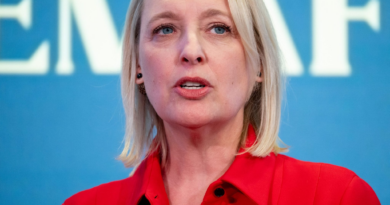Future generation of billionaires will inherit their wealth and be less generous: UBS
While millionaires have long been associated with familial wealth and lengthy dynasties, it has always taken something special to become a billionaire. Whether it’s founding the next tech giant or working your way up to the boardroom of a Fortune 500 company, the richest people in the world tend—at least in part—to be a product of hard work and major innovation.
Now, though, a new study suggests that the next generation of billionaires is increasingly becoming a product of their parents, and they might be a bit more brattish than their forebears.
A report by Swiss Bank UBS, which caters to the super-rich, has found that those who became billionaires last year as a result of inheritance were richer than through who arrived through entrepreneurship.
Of the 137 people who joined the exclusive billionaire club last year, 53 of them received $150.8 billion through wealth transfers, while the remaining 84 self-made billionaires accumulated $140.7 billion. It’s the first time in the report’s eight versions that more money has come through inheritance.
In total, UBS expects 1,000 billionaires to transfer $5.2 trillion of wealth to their children over the next few decades.
The new billionaire
The findings demonstrate the great wealth transfer occurring at all levels of society, as wealthy baby boomers pass on an estimated $72 trillion to millennials in a trend supercharged by the billionaires.
The median age of a billionaire is 67, according to a May report published by information service Altara, and they are increasingly contemplating what will happen to their fortunes after they pass on.
But while Altara’s census identifies the current generation of billionaires as entrepreneurial boomers, the latest report by UBS suggests the next cohort will be anything but.
Several billionaires including Bill Gates and Warren Buffett have been defined by their philanthropy as much as their business successes, with both devoting most of their wealth to charitable causes during and after their deaths.
And they’re not alone. A survey of self-made billionaires by UBS found that more than two-thirds thought hitting philanthropic goals and making an impact on the world was the main objective of their legacy.
By comparison, the same survey found less than a third of billionaires who inherited their wealth shared that concern. Instead, the inheritance generation views continuing to grow their companies and passing their wealth to their own kids as top priorities.
That attitude is making the current ultra-rich nervous about who might inherit their empire, as major billionaire-led companies like LVMH and Armani draw up detailed succession plans that include family members.
Three-fifths of first-generation billionaires said their biggest concern was instilling their offspring with the necessary values, education, and experience to take over.
One billionaire surveyed by UBS for the survey told the bank: “The main problem with the younger generation is to educate them to be ambitious. They take ambitions for granted, they take important entrepreneurial information for granted, whereas the founding generation has to collect this for themselves and make the best out of it.”
Inheritance taxes in the spotlight
The new age of billionaires might be less generous and, based on current frameworks, they’re also likely to avoid paying taxes in the same way their parents did.
Entrepreneurial billionaires have broadly faced different taxes throughout their lives as they accumulated wealth, notably income tax and capital gains tax. That is unlikely to be the case for most of their offspring, who will also probably avoid paying inheritance tax.
A January study published by Oxfam found that half of the world’s billionaires live in countries with no inheritance tax on money given to children. That means $5 trillion of wealth will be passed onto the next generation tax-free, Oxfam says.
Still, inheritance tax is unlikely to be introduced on a global scale, with opponents arguing it acts as a double tax on wealth that has already been created. U.K. Prime Minister Rishi Sunak said he would consider scrapping what he described as the “most unfair tax,” despite research showing scrapping it would favor the wealthy the most.
However, a steep rise in inequality in recent decades between billionaires and the rest of the world has prompted authorities to think up potential solutions to close the gap and prevent loopholes during the inheritance phase.
An October report published by the EU Tax Observatory recommended a global tax for the world’s 2,700 billionaires. Such a tax would garner $250 billion per year, the body said.




